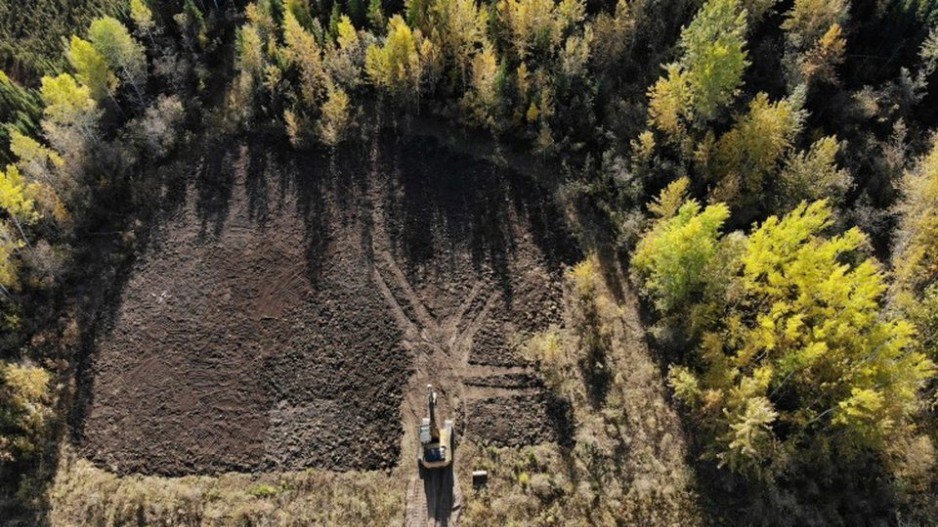B.C. orphan and dormant oil and gas well clean-ups received a second round of funding Feb. 11 as federal and provincial ministers announced a further $50 million for the province's remediation program.
Federal Minister of Environment and Climate Change Jonathan Wilkinson and B.C. Minister of Energy Bruce Ralston said the funding helps in cutting climate-change inducing methane leaks from wells as well as provides employment during the pandemic energy industry slowdown.
The money is part of Ottawa’s $120-million B.C. investment to support cleaning up oil and gas sites. Victoria divided that into three programs aimed at boosting the provincial economy and accelerating restoration of the environment: the Dormant Sites Reclamation Program, the Orphan Sites Supplemental Reclamation Program and the Legacy Sites Reclamation Program.
"Our dormant well clean-up program has already proven itself as a critical part of B.C.'s economic recovery, supporting nearly 1,000 jobs for local workers. This second round of funding will continue to be a 'win-win' for our economy and environment," Ralston said.
The programs pair funding with targeting inactive wells chosen by landowners, municipalities and Indigenous communities for priority cleanup.
During 2020’s nomination process, 1,853 nominations were received for 1,464 dormant sites by 14 Indigenous communities, landowners and local governments.
Ralston’s ministry said that of about 25,000 B.C. oil and gas well sites, some 770 are considered orphan while 8,527 are considered dormant.
Dawson Creek Mayor Dale Bumstead said the energy industry has been busy in the northeastern Peace region for about seven decades but added agriculture has been a staple industry that was important long before that.
He said well cleanup allows more land to be returned to agricultural uses, and it also provides cleanup phase jobs – all of which contribute to the area’s economy, which has been hard hit during the pandemic.
"Cleaning up inactive and orphan wells is good for the environment and the economy," Wilkinson said. “Through this program, we are preventing the leakage of methane emissions that are harmful to human health and the environment, supporting landowners by helping to restore their lands and protecting and creating good jobs.”
In July 2020, Victoria announced a nomination portal so British Columbians could help prioritize the cleanup of orphan and dormant wells that were known locally and regionally.
When the first part of the program to fund cleanup of B.C. dormant and orphan oil and gas wells in B.C. was announced last year, it was almost fully subscribed in a single day.
In April 2020, as part of a federal economic recovery plan for the beleaguered oil and gas sector, Ottawa announced immediate funding to accelerate the cleanup of dormant and orphan oil and gas wells in Western Canada. It included $120 million for B.C.
The provincial government put out a call for applications and, on May 25, received an overwhelming response.
That first $50 million resulted in work completed at 139 sites, the ministry said. Some $15 million was allocated to sites within the province's Agricultural Land Reserve and includes projects planned or already underway on 325 sites for decommissioning and 122 sites for restoration work.
As well, abandonment work has been completed at five northeastern B.C. dormant well sites in federally listed "species at risk" habitat critical to the northern mountain population of woodland caribou. It is expected the first $50 million will support reclamation work at 669 dormant well sites in caribou habitat.
Eligible B.C. oil and gas field service companies and contractors, which have registration, offices and operations in the province, will receive up to $100,000 or 50% of total costs, whichever is less, per eligible work activity.
The decommissioning and restoration of oil and gas sites in B.C. is regulated by the BC Oil and Gas Commission (BCOGC), which has developed a comprehensive liability management plan.
As far as the three programs go:
• The Dormant Sites Reclamation Program provides $100 million to reclaim dormant oil and gas sites, which are wells that have been inactive for five consecutive years and are unlikely to be returned to service;
• The Orphan Sites Supplemental Reclamation Program provides $15 million to reclaim orphan oil and gas sites where the operator is insolvent, no longer exists or cannot be located. This program is administered by the BCOGC; and
• The Legacy Sites Reclamation Program provides $5 million to address the legacy impacts of historical oil and gas activities that continue to have environmental impacts, such as on wildlife habitat or on the traditional use by Indigenous peoples.
@jhainswo




